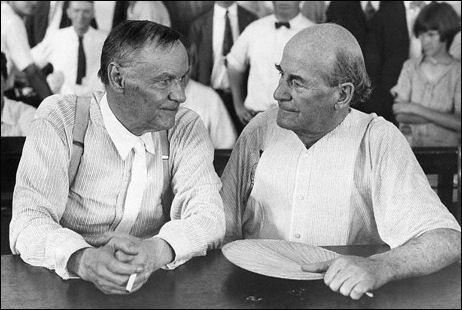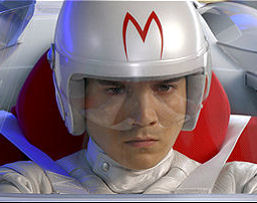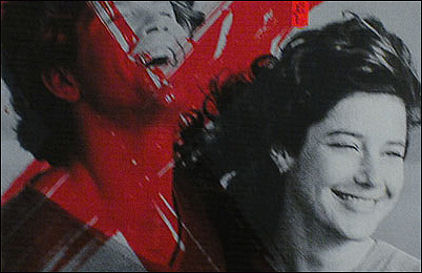Imagine if a female celebrity emerged from plastic surgery with her mouth sewn up…no lips, no trace, just skin. The rationale, a friend might tell a tabloid reporter, is that while she can no longer talk, sing, smile, kiss or eat, at least the permanent frown — the sagging bulldog corners on either side of her mouth — is now gone, and she’s happy about that. The revulsion would be instantaneous, right? Well, look at this. Because it’s real. I’ve never seen anything so deranged, plastic surgery-wise, in my life. (And while you’re at it, check out that left hand and the dried-blood fingernails…the mummy’s claw!)
wired
Three Dali movies
A painter I knew in the ’80s always referred to Salvador Dali as “Norman Rockwell on acid.” And now three Dail biopics with three stars — Johnny Depp, Al Pacino and Peter O’Toole — are reportedly being prepared. If I were a potential investor, I would think twice about investing. Movies about eccentric artists tend to piddle along or just lay there. Two exceptions: Ken Russell‘s Savage Messiah and The Music Lovers.

Cadaques, Spain — an hour south of the French border
My most profound commnunication with the spirit of Salvador Dali happened when I visited the Spanish seaside town of Cadaques, where Dali had a home. Nice place, cool vibe.
Stein joins up with fundamentalists
“Disinvited to a Screening, a Critic Ends Up in a Faith-Based Crossfire,” a 3.10 N.Y. Times story by John Metcalfe, is about how Orlando Sentinel critic Roger Moore managed to attend a screening of a fundamentalist right-wing documentary called Expelled: No Intelligence Allowed, in which Ben Stein does a Michael Moore-ish job of selling the idea of “intelligent design,” and how he panned it and so on.

Intelligent design, which President George Bush allegedly believes in, is creationism in new clothes. Anyone who’s seen Inherit The Wind, the Stanley Kramer drama about the famous 1925 “monkey trial” in Dayton, Tennesee, knows that creationism is a belief that God in heaven created everything as part of an immaculate design. They also know that creationism’s most fervent supporters during the monkey trial days were backwater yahoos — the religious right of the Calvin Coolidge era.
Premise Media Corporation, a right-wing religious organization involved in various Christian enterprises (including super-churches), produced and is distributing Expelled.
The irony is that I happen to believe in intelligent design also, in a sense. There is obviously a unified flow and an absolute cosmic commonality in all living things and all aspects of the architecture. The difference is that I don’t attach a Bible-belt morality to this overwhelming fact. To me God is impartial, celestial, biological, mathematical, amoral, unemotional, miraculous and breathtaking. However you define the altogether, He/She/It has absolutely zero “interest” in whether you or your great-uncle or next door neighbor are adhering to the Ten Commandments or having an abortion or helping a homeless person or what-have-you. The molecular perfection and mind-blowingly infinite implications of God are way, way beyond ground-level morality.
What I don’t get is why a sophisticated brainy fellow like Ben Stein would make a movie for Bible-belt types. He surely doesn’t believe that the earth was created 6,000 years ago, or that cavemen and dinosaurs roamed the earth at the same time. (This issue was brought up by a born-again Christian character in The Sopranos a couple of seasons back, and Tony replied, “What, like the Flintstones?”)

Clarence Darrow, William Jennings Byran during the Scopes “monkey” trial
Stein is a very bright fellow, and not in my judgment the type to look heavenward for answers to everything, and certainly not one to embrace the primitive attitudes of those who call themselves “God-fearing.” When I interviewed Stein for a 1994 Los Angeles magazine piece about Hollywood Republicans, he said that “the agenda of Republicans out here is the same as everyone else — get in on the goodies.” Stein, in short, is basically a right-wing guy who’s in business. What was he paid to be the star of Expelled? What are they paying him to attend early screenings?
In that same article screenwriter Lionel Chetwynd said that “people on the right are considered by people of the left to be too insensitive, too Darwinian. They’re not touchy-feely enough to write touchy-feely movies. They have been ghetto-ized into the action field.” Darwinian?
Categories wired 60 Comments
Reason to raise a glass
Congrats and best wishes to director Phillip Noyce (Mary Queen of Scots, Catch a Fire, Clear and Present Danger) and South African designer Vuyo Dyasi on the birth of their son, Luvuyo William Noyce, born today in London. Noyce and Dyasi met in ’05 during the shooting of Catch A Fire in Johannesburgh. Luvuyo means “it is joy” in his mother’s Xhosa language.
Speed Racer McDonalds
Wachowski brothers’ live-action Speed Racer (Warner Bros., 5.9) will close the Tribeca Film Festival on May 6th, or three days before the nationwide opening. If you ask me the film is already looking pretty silly due to Emile Hirsch‘s McDonald’s helmet. I took one look at this photo and went “what?” Is this an intentional joke? (Producer Joel Silver‘s Demolition Man had fun with Taco Bell, after all.)


Emile Hirsch in Speed Racer (Warner Bros., 5.9)
The Reeler‘s Stu VanAirsdale is reporting that other Tribeca world premieres are I Am Because We Are, the Madonna-produced documentary about orphans of the AIDS epidemic in Malawi, and Mariah Carey‘s Tennessee.
Rebuttal
This is Senator Obama’s best retort ever to Senator Clinton’s “he won’t be ready on day one” argument. In fact, it blows it all to hell. She’s boxed herself in and there’s no way out of this. Plus her management abilities have been called into question in a just-published N.Y. Times story. A one-two punch by any standard or yardstick.
In a speech today in Mississippi, Obama said, “With all due respect…with all due respect…I’ve won twice as many states as Senator Clinton, I’ve won more of the popular vote than Senator Clinton, I’ve more delegates than Senator Clinton…so I don’t know how somebody who’s in second place is offering the vice-presidency to someone who’s in first place. So that’s point #1.
“Point # 2 is that Senator Bill Clinton, back in 1992, said the only criteria…the most important criteria for vice-president..is that that person, if [he] fell out in the first week, is that he or she would be ready to be commander in chief. That was his criteria. [But Senator Clinton’s campaign has] been saying for the past two or three weeks…you remember that advertisement with the phone call ad, we’re not sure he’s ready, I’ll be ready on day one but he may not be ready…but if I’m not ready, how is it that [Senator Clinton] thinks I should be vice-president?”
Plus Adam Nagourney, Patrick Healy and Kate Zernike‘s N.Y. Times story calls Clinton’s leadership and management abilities, into question, to wit:
“Interviews with campaign aides, associates and friends suggest that Mrs. Clinton, at least until February, was a detached manager. Juggling the demands of being a candidate, she paid little attention to detail, delegated decisions large and small and deferred to advisers on critical questions. Mrs. Clinton accepted or seemed unaware of the intense factionalism and feuding that often paralyzed her campaign and that prevented her aides from reaching consensus on basic questions like what states to fight in and how to go after Mr. Obama, of Illinois.
“Mrs. Clinton showed a tendency toward an insular management style, relying on a coterie of aides who have worked for her for years, her aides and associates said. Her choice of lieutenants, and her insistence on staying with them even when friends urged her to shake things up, was blamed by some associates for the campaign√ɬ¢√¢‚Äö¬¨√¢‚Äû¬¢s woes. Again and again, the senator was portrayed as a manager who valued loyalty and familiarity over experience and expertise.”
“Incredible Hulk” teaser
This Incredible Hulk teaser isn’t loading for me, but maybe it’s just the traffic.
Spitzer is (apparently] toast
The same urge that drives men to seek and acquire political power routinely manifests, as history has shown us for centuries, in appetites for the company of women outside the bounds of marriage and Christian propriety. As Norman Mailer once suggested about the incessant catting around attributed to John F. Kennedy, “He probably thought that one wasn’t any good without the other.” It’s very common, very typical, very no-big-deal. Read a history book. Read “Plutarch’s Lives.” Consider how Europeans deal with such reports when they come up.

Still, the breaking news that New York governor Eliot Spitzer will soon make a public admission about having been “involved” in a prostitution ring, the word “involved” apparently being a euphemism for having paid for the services of a high-class hooker, is a bit of a mind-blower, given his reformist/crime-fighting credentials. As an MSNBC commentator just said, “He was Mr. Straight-Arrow …he was Eliot Ness.”
A New York Times story by Danny Rakim and William H. Rashbaum says that “a person with knowledge of the governor’s role [in the scandal] said that the person believes the governor is one of the men identified in court papers as “client #9” of the Emperors Club VIP, a high-priced service that was busted a few days ago with offered prices of $1000 to $5500 a pop.
“The governor’s travel records show that he was in Washington in mid-February, [and that] one of the clients described in court papers arranged to meet with a prostitute who was part of the ring, the Emperors Club VIP on the night of Feb. 13,” the Times story says.
Given reports that federal prosecutors have copies of text messages sent by Spitzer “requesting a meeting” with an Emperors Club rep or “service provider” (according to televised reports), it may be that a self-destructive urge was merged in this instance with the usual-usual. In the final analysis it was a personal mistake that didn’t involve corruption or financial wrong-doing or overt criminality. He was just a “john.” An incredibly stupid move, but in the realm of political misconduct this is a misdemeanor-level thing.
Dowd’s stern words
Like me, N.Y. Times columnist Maureen Dowd has come to feel that somehow, some way Barack Obama needs to strap on the shootin’ irons like Gary Cooper and go out and face the cigar-chomping Ma Clinton and her gang of cutthroat spinners. In ten words, “You can’t be elected president unless you prove you’re tough.”
Jotting #1: “Obama’s multiculturalism is a selling point with many Democrats. But his impassioned egghead advisers have made his campaign seem not only out of his control, but effete and vaguely foreign — the same unflattering light that doomed Michael Dukakis and John Kerry. ”
Jotting #2: “It has taken Obama a year to start seriously rebutting Hillary’s risible claim that she has far more national security experience than he does. Having a first lady tea in Belfast is not equivalent to bringing peace to Northern Ireland.”
Jotting #3: “Obama sounded whiny after his losses, chastising reporters on his plane for asking him hard questions about Goolsbee and Antonin Rezko. Privately, his people conceded that he hadn’t been as fierce about winning as Hillary, once more playing rope-a-dope.”
Jotting #4: “He’s now learned what Hillary learned in Iowa: You can’t cruise to victory on a coronation strategy.”
“Mike’s Murder”
The Bank Job‘s somewhat disappointing showing this weekend reminded me again how people don’t seem to support solid, commendable mid-range movies much anymore. 90% of the creme de la creme Rotten Tomatoes gang gave it a thumb’s up, and the impact was negligible. For reasons that may seem to defy precise linkage, this reminded me this morning of Mike’s Murder, a haunting James Bridges drama that didn’t sell enough tickets either when it opened in March 1984.

And yet it gets better in my head the more I think back on it. Which I do from time to time.
I’m mentioning Mike’s Murder because, like David Jones‘ Betrayal (’83), it was issued eons ago on VHS but is still not on DVD. This situation should be corrected by Warner Home Video. It’s way too good to be buried or shunted aside.
It didn’t register very strongly in the mid-Reagan era because it didn’t shoot for the stratosphere or deliver fierce visceral thrills, which is what audiences seemed to be responding to more and more back then. (The ’70s heyday had drawn to a close, and blunt-impact movies — sci-fi epics, actioners, tits-and-zits comedies — were gaining big- time.) But it handled itself and its subject — the L.A. drug-dealing scene — in a way that was almost deceptively powerful. It’s a somber little creep- out thing.
And it had some unusually penetrating performances from Debra Winger, Paul Winfield, Mark Keyloun (a newcomer at the time who seemed to work mostly on television after Mike’s Murder and who retired from acting in the early ’90s) and Darrell Larson. There was real ache and loneliness in their emoting. Which lent unusual gravity to a story that structurally was only a murder-mystery.
The good things about Mike’s Murder eluded several respected critics when it opened 24 years ago. N.Y. Times critic Vincent Canby didn’t even give it the courtesy of a full- length review when he dealt with it on 3.9.84. Pauline Kael, however, defended it, and I wish I could find at least a fragment of her New Yorker review online. I remember how her review noted that a N.Y. Times TV page editor had written “skip it” in response to an airing of Mike’s Murder on a New York-area station, and Kael saying in response, “Please, don’t skip it.”

Winger plays Betty, a practical minded but lonely bank teller living in Brentwood. She falls for Mike, a light-hearted tennis instructor (Keyloun) who spends a single night with her after a brief flirtation. He’s obviously immature and irresponsible, not returning calls and whatnot, but she can’t let him go. Then after he doesn’t show up for a date, Betty learns to her shock that he’s been slain by drug dealers. And so she decides to assuage her pain by looking into his sordid past to learn what happened, and the journey she takes into the toney, drug-dealing underworld that gives Mike’s Murder its strange, unsettling edge.
An IMDB posting by James Sanford says that Mike’s Murder has “a beautifully evoked, vaguely creepy atmosphere that hangs over every scene….the crime that sets the story in motion remains unsolved at the end, and perhaps that’s how it should be. It’s not important who really killed Mike Chuhutsky, Bridges seems to be saying. Not when it’s so obvious what killed him.”
David Ehrenstein explained the genesis of Mike’s Murder in this ’04 Advocate article.
It’s been over ten years since I’ve seen Mike’s Murder, but I remember three things in particular: (a) the look of immense sadness on Winfield’s face as his character, a wealthy gay man who had a thing for Mike, considers the character flaws that led to the young man’s death, (b) the horrific howl that comes out of Larson, who plays Mike’s not-very-smart best friend, as he’s about to be murdered by thugs for having stolen cocaine from a major dealer who lives in the hills, and (c) a nifty little sequence in the very beginning that shows a hamburger being prepared at Tomy’s on Pico Blvd.
For whatever reason I don’t recall anything about Joe Jackson‘s score. Was it mainly a series of songs with a few stabs at mood and atmosphere? That’s what an online description says but my mind’s a blank.
HE to WHV’s Ned Price and George Feltenstein: please do the right thing and issue this film on DVD before too much time elapses.
Media and Fluidity
Boiled down, the theme of Peter Keough‘s “The Medium is the Movie,” a 3.5 Boston Phoenix piece that I stopped reading two thirds of the way through because I didn’t feel a sense of gathering force, is that “reality and truth are fluid, and are dictated by whoever is behind the camera.”
I think we all know that. A more interesting idea, to me, is how the constant streams of fluid media are taking over everything…how fewer and fewer of us seem to live or think or create in organic, three-dimensional, tactile ways or realms.
Cowie also quotes a 1964 Marshall McLuhan line, submitted in Understanding Media: The Extensions of Man, that ‘we have extended our central nervous system itself in a global embrace, abolishing both space and time…we approach the final phase of the extensions of man — the technological simulation of consciousness.’
This “might have sounded a little over the top” 44 years ago, Cowie states, but “not so much now.”
Sunday numbers
10,000 B.C. was projected to earn $32 million yesterday morning, but yesterday’s ticket-sale surge has resulted in a slight adjustment — it’s now expected to earn $35.3 million. The completely repulsive College Road Trip is looking at $13.8 million by tonight as opposed to yesterday’s forecast of $12.5 million. The Bank Job has notched up also — projected to earn a weekend tally of $4,980,000 yesterday, it’s now looking at $5.5 million. (But it should have done better, being far and away the best-quality film to have opened two days ago.)
